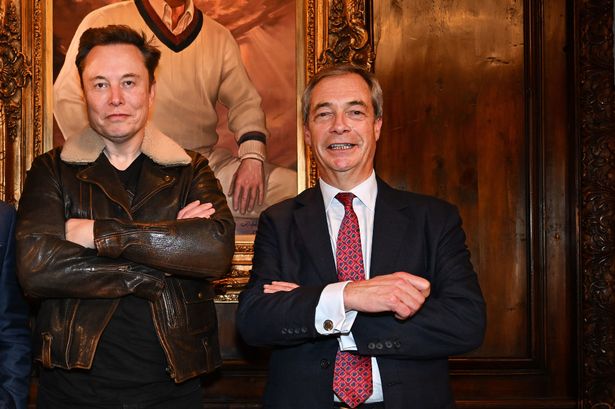Elon Musk’s recent dismissal of Nigel Farage as a viable leader for Reform UK has ignited a firestorm of controversy, exposing the volatile and often paradoxical nature of political endorsements in the digital age. The curt declaration, delivered via a social media platform Musk himself owns, underscores the immense power tech billionaires wield in shaping public discourse and influencing political fortunes. Farage, the former leader of the UK Independence Party (UKIP) and a prominent figure in the Brexit campaign, had only recently lauded Musk as a “hero” and expressed his belief that the Tesla and SpaceX CEO’s apparent support would enhance Reform UK’s image and appeal, particularly among younger voters. Musk’s subsequent rejection of Farage, however, throws into sharp relief the precarious nature of such alliances and the potential for rapid shifts in political allegiances. This incident also highlights the increasing importance of social media as a battleground for political influence and the significant role played by figures like Musk, who command vast online audiences and can sway public opinion with a single tweet.
The exchange between Musk and Farage unfolded in the context of Reform UK’s efforts to reposition itself within the British political landscape. The party, which emerged from the Brexit Party, has struggled to gain significant traction beyond its core support base. Farage, recognizing the need to broaden the party’s appeal, seemingly saw an alliance with Musk as a strategic opportunity to inject fresh energy and garner attention from demographics traditionally outside Reform UK’s reach. Musk’s initial engagement with Farage, perceived by some as an endorsement, fueled speculation about a potential collaboration and generated considerable media buzz. This brief period of perceived alignment between the two figures appeared to validate Farage’s strategy of leveraging Musk’s popularity to elevate Reform UK’s profile. However, Musk’s swift disavowal of Farage not only undermined this strategy but also exposed the inherent risks of relying on the unpredictable whims of powerful individuals.
The incident raises crucial questions about the nature of political leadership in the 21st century and the influence of non-political actors like Musk. Traditional political structures and hierarchies are increasingly being challenged by the rise of social media and the emergence of influential figures who operate outside the established political system. Musk, with his massive online following and outspoken pronouncements on a wide range of issues, epitomizes this new breed of influencer. His pronouncements, even on matters outside his core business interests, carry significant weight and can shape public discourse in profound ways. The Farage episode demonstrates how such figures can effectively bestow or withdraw political capital with remarkable speed and impact, bypassing traditional channels of endorsement and challenging the established norms of political engagement.
This episode also sheds light on the complexities of political branding and image-making in the digital age. Farage’s attempt to leverage Musk’s “cool factor” to bolster Reform UK’s image speaks to the growing importance of perceived coolness and relatability in contemporary politics. In a media landscape saturated with information and competing narratives, political parties increasingly rely on branding and image-cultivation to cut through the noise and connect with voters, particularly younger demographics who are often less engaged with traditional political discourse. Farage’s gambit, however, ultimately backfired, highlighting the inherent risks of associating a political brand too closely with the unpredictable persona of a single individual, especially one operating outside the traditional political sphere.
The fallout from Musk’s rejection of Farage is likely to have significant implications for Reform UK’s future trajectory. The party, already facing an uphill battle to gain mainstream acceptance, now has to contend with the negative publicity surrounding this incident. The perceived snub by Musk could damage the party’s credibility and undermine its efforts to broaden its appeal beyond its existing base. Furthermore, the episode raises questions about Farage’s own political judgment and his ability to effectively navigate the complexities of the modern media landscape. His miscalculation in assuming Musk’s support may further alienate potential allies and reinforce the perception of Reform UK as a fringe party.
Ultimately, the Musk-Farage saga serves as a cautionary tale about the pitfalls of political opportunism and the volatile nature of alliances in the age of social media. It underscores the growing influence of tech billionaires like Musk in shaping political narratives and the increasing importance of online platforms as battlegrounds for political influence. The incident also highlights the challenges faced by political parties seeking to navigate the rapidly evolving media landscape and the risks associated with relying on the fickle favor of powerful individuals outside the traditional political realm. The long-term consequences of this episode remain to be seen, but it is clear that the intersection of politics, technology, and social media will continue to play a defining role in shaping the future of political discourse and leadership.














